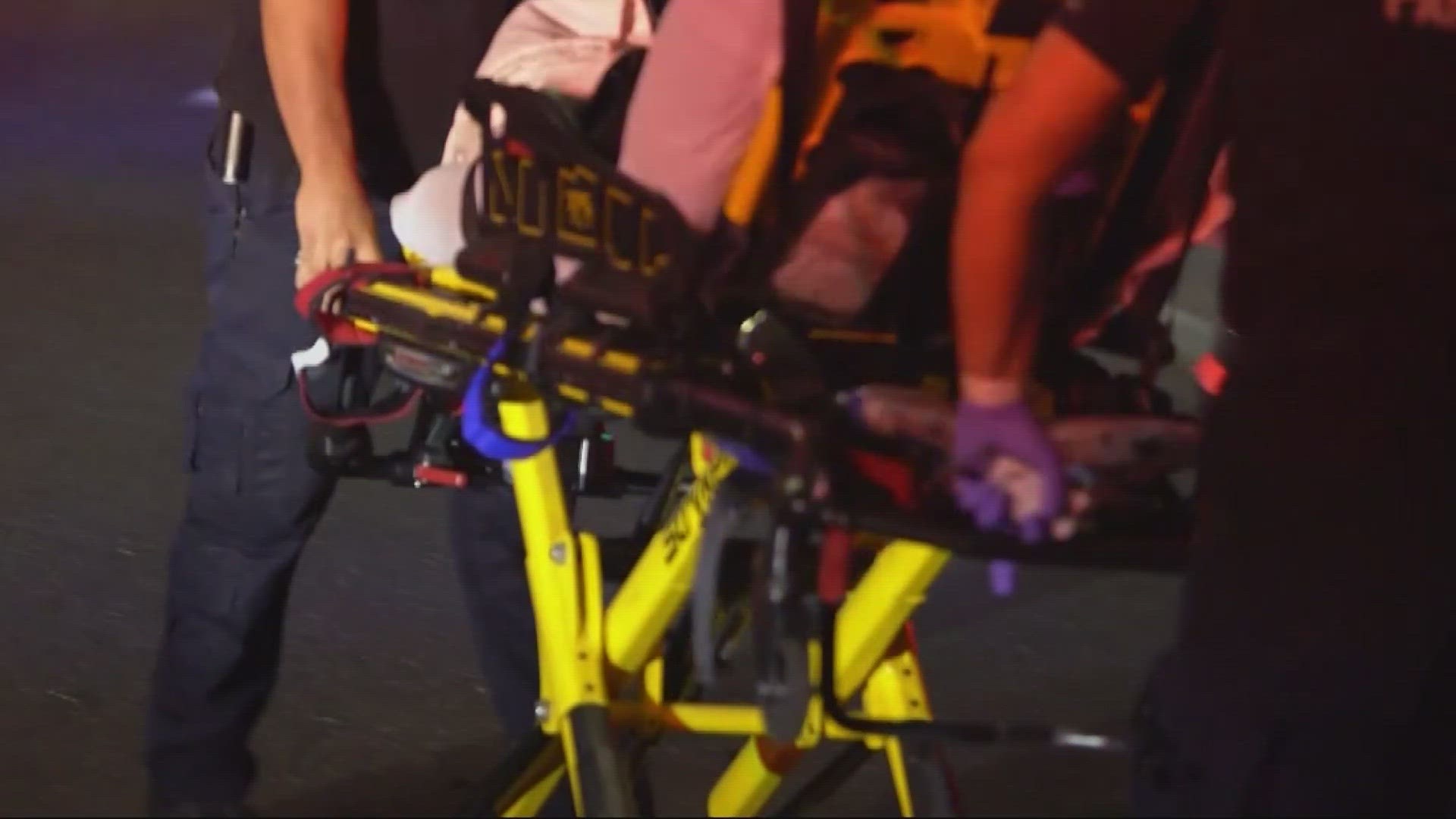PORTLAND, Ore. — In the early morning hours of April 10, a harrowing scene unfolded on a downtown Portland sidewalk: A pregnant, homeless woman, struggling with a fentanyl addiction, went into labor while in her tent.
She and her partner, You'ssef Amhaz, were staying across the street from a fire station.
Amhaz described his last-minute call to 911: "She was bleeding a lot. The cord, the baby cord went around her neck. She said, 'No, no help.' I said, 'No.' She was bleeding a lot. I said, 'You need to go to the hospital.'"
A recording of the dispatch call to 911 shows the woman had no prenatal care and the couple used fentanyl an hour before first responders arrived.
"It's hard, real hard. Nobody helps," Amhaz said, fighting back tears.
She was eventually taken to the hospital. Twelve days after the birth, the baby remained in the hospital, and the mother was back on the streets. Doctors would not give KGW an update on the baby’s condition.
On Monday, Amhaz unzipped their tent to show the lining, which was still stained with blood. He said this was not the first time she gave birth on the streets.
"This is the second baby now. I got her pregnant again. I have two babies with her," Amhaz said.
"It's tragic, and what that addiction does really alters their ability to hover over the top of their current situation and make good decisions for themselves," said Rick Graves, the public information officer for Portland Fire & Rescue (PF&R).
First responders from Portland Fire have been called to help the woman six times in the past two weeks. Four of those calls were to connect her with treatment and housing. She took water and Narcan but declined services. Other times, they couldn't find her.
"We've worked with her as best as possible and given her every opportunity with every bit of assistance we can give her. It's a matter of how much assistance she wants to receive," Graves said. "Like, we can want the program for them as much as possible, but until they're ready for the program, it's just waiting."
RELATED: Portland program pairing police with outreach workers gets expansion under fentanyl emergency
"Every system has failed her," said Multnomah County Commissioner Sharon Meieran, who learned about this from a witness to the labor. Meieran said she sees this as a painful example of what she believes is the county's inability to address this crisis during the 90-day fentanyl state of emergency that ends later this month.
"If a county emergency means anything, it should mean that we are able to help a pregnant woman living outside on the streets who is addicted to fentanyl giving birth in her tent. The fact that it took a passerby who happened to know who to call to address her situation is appalling," Meieran said.
"We need help. Lots of people here. We need help. We need a place to stay," Amhaz said.
Portland City Commissioner Rene Gonzalez was also briefed on the incident and stated on social media, in part, "Portland is battling a severe fentanyl crisis that not only jeopardizes public safety but also causes immense harm to our next generation and deeply strains our entire healthcare system. … We must confront the devastation women and children on our streets face and the impacts on our healthcare workers.
"It's crucial that we talk about these issues in the open and mobilize a response. Our goal must be to protect the most vulnerable — our children and their mothers — ensuring they receive the support and care they desperately need."
As for the mother, she remains in her tent downtown. Camp removal crews recently posted her site for removal. However, first responders told KGW she is on a list for a tiny home.

